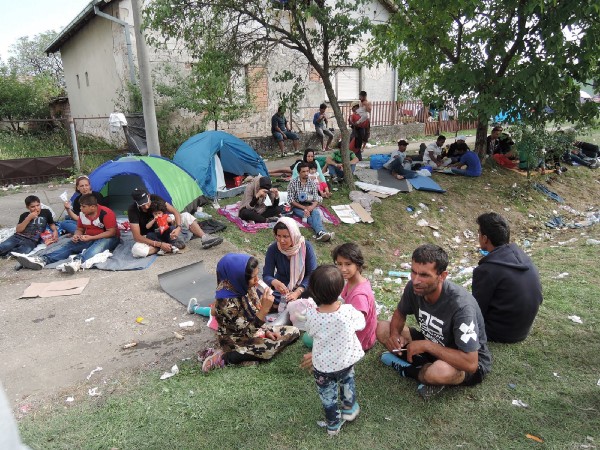
Engage: migration, displacement, and reconciliation
Can we bring a voice of hope to this challenging, global issue?
The launch edition of IFES Word & World, published last year, asked how Christians might respond to the global issue of migration.
We often think of migration as people leaving one country and travelling to another. But the word ‘migrant’ is defined as “one who moves, either temporarily or permanently, from one place, area, or country of residence to another”. For some migration is the result of choice, but for many more migration is a response to war, conflict, hunger or fear.

Internal displacement
Mainstream media often focuses on those migrating across national borders, but there are many who are forced to flee their home whilst remaining within their home country. Internally displaced peoples are often referred to as ‘refugees’, but they lack many of the legal protections of those who flee to other countries.
Rob Heimburger, editor of Word & World, has first-hand experience of supporting some of the 7 million internally displaced people in Colombia — the second largest displaced population after Syria. Both these countries are suffering the long-term effects of civil war.
Following conflict between the government, left-wing guerrillas, and right-wing paramilitaries, large numbers in Colombia have been forced to flee farms and villages, resettling on the edges of cities or forced to live in slums.
Reconciling people and communities
Countries affected by civil war are places where deep and real reconciliation is difficult but urgently needed. A project that Rob is involved with in Medellin focuses on helping communities flourish, reconciling people and communities affected by the civil war. Projects like this demonstrate a commitment to rigorous Bible exposition and application, calling us to apply our faith to the issues we see around us: locally, nationally, and globally.
Word & World includes theological reflection on the subject of migration, seeing it as a topic that is woven through both Old and New Testaments, where a migrant God calls a migrant people.
Some Christians are among those migrating. Others are at the forefront of welcoming migrants. Still others are calling for order and opposing migration. What response does Christian worship invite? What response does hearing the word of God bring to these troubled scenes of migration?
Respond
How are you, or those in your university, speaking into the issue of migration? We would love to hear of ways in which migration is being addressed, challenged, and prayed for in your university. Let us know in the comments below.
